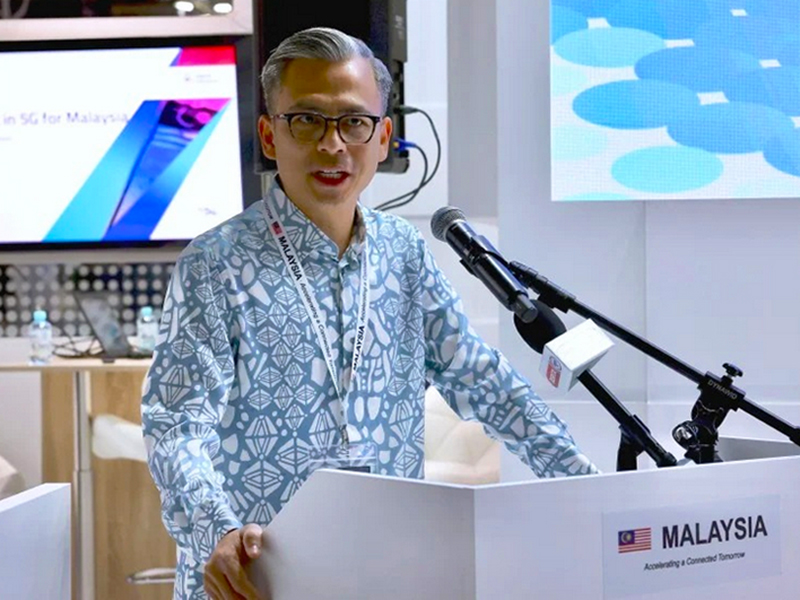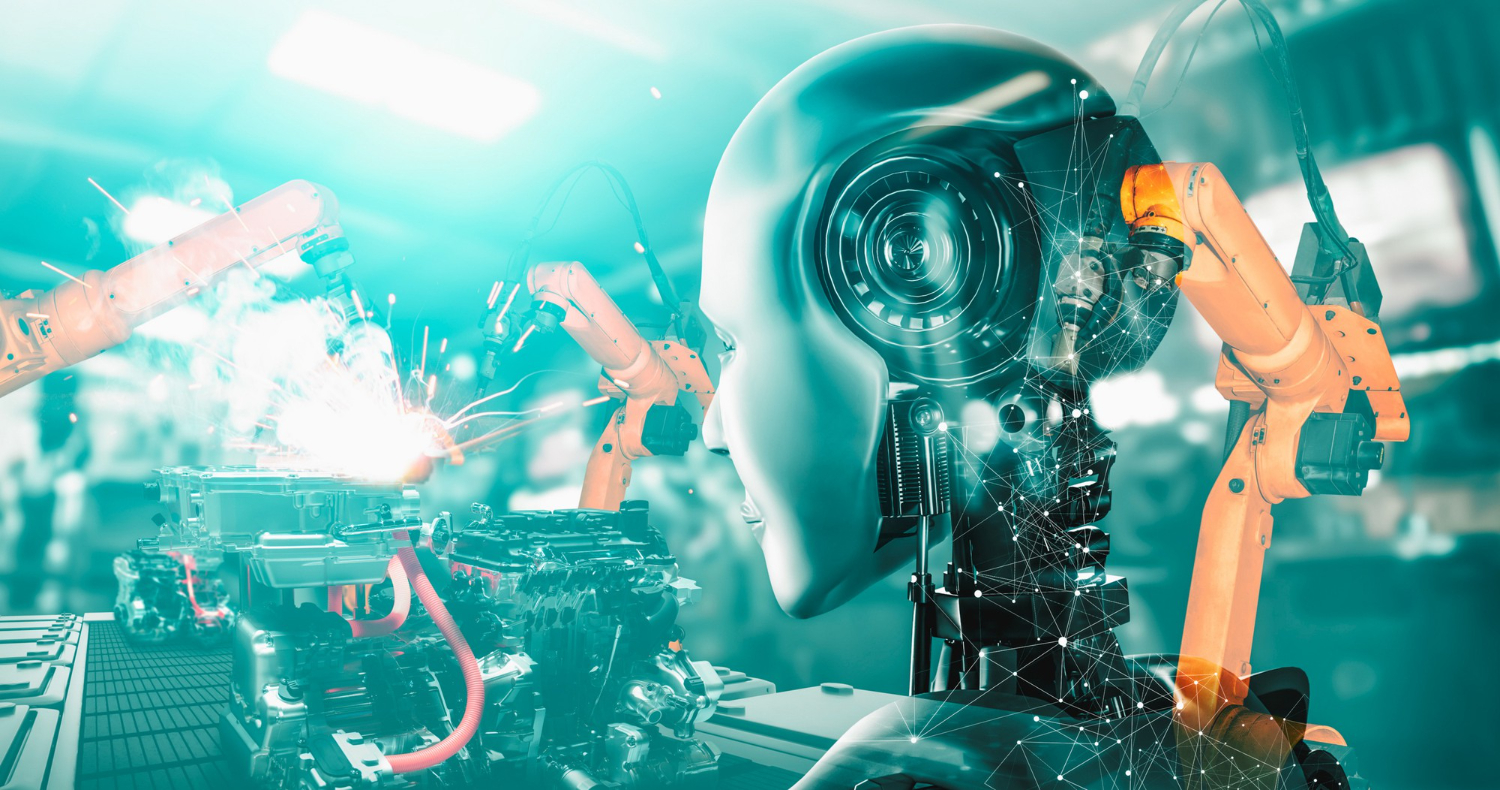Bite-Sized News Bits
Compilations of the latest news on 4IR and technological wave
Public Urged to Be Vigilant Against Deepfake Scams
The public is advised to stay alert for scams involving fake videos and images, commonly known as deepfakes, created using AI technology.
Malaysia’s Communications Minister Fahmi Fadzil highlighted that while AI offers significant development benefits, some individuals exploit this technology maliciously. “Datuk Seri Siti Nurhaliza recently shared on Instagram a WhatsApp video call that appeared as if she was speaking live, but it was a deepfake,” stated Fahmi during the ministry’s monthly assembly recently.
He added: “AI has the potential for both positive and negative use. Verifying the authenticity of any video received is crucial to ensure it is genuine and not AI-generated.
Fahmi also urged the national news agency Bernama and Radio Televisyen Malaysia (RTM) to raise awareness and educate the public about the dangers of AI deepfake scams.
On July 14, the nation’s leading singer exposed the latest tactic employed by scammers, who are believed to be using AI technology to mimic her voice and appearance for financial gain.
New Chip Startup Challenges Nvidia’s AI Dominance
Jim Keller, a renowned chip designer with experience at Intel, AMD, and Tesla, is on a mission to reduce the cost of AI applications by developing more efficient chips than those offered by Nvidia. As the current CEO of Tenstorrent, a US startup focused on AI chip design, Keller aims to capture a share of the market dominated by the American giant.
Keller points out that many markets are underserved by Nvidia, particularly as AI’s use expands into smartphones, electric vehicles (EVs), and cloud services. Small companies often cannot afford Nvidia’s high-end GPUs, which cost up to US$20,000. Keller, famed for designing AMD’s Zen series and contributing to Tesla’s Autopilot, is determined to offer a cost-effective alternative.
Tenstorrent, established in 2016, is preparing to launch its second-generation AI chip, which claims superior energy and processing efficiency compared to Nvidia’s GPUs. The new chip, designed without high-bandwidth memory (HBM), significantly reduces energy consumption and costs. Keller believes this innovative approach, coupled with the chip’s flexible architecture, positions Tenstorrent to challenge Nvidia and cater to various AI market needs. Keller predicts a future where multiple new players will emerge to fill niches unaddressed by Nvidia, emphasising Tenstorrent’s strategy to create adaptable technology for diverse AI applications.
Xiaomi’s New Factory: Where Machines Rule
Xiaomi has unveiled its groundbreaking 100% automated Smart Factory, an advanced facility capable of producing smartphones without human intervention. This state-of-the-art factory in Changping district, northeast of Beijing, marks a significant leap in the company’s manufacturing capabilities.
The factory covers 80,000 square meters and is dedicated to producing Xiaomi’s latest foldable phones, the MIX Fold 4 and the MIX Flip. It can produce one smartphone every three seconds and operates 24/7.
The facility boasts a pristine manufacturing environment with micron-level dust removal, ensuring a high standard of cleanliness. A few humans, dressed in operating- theatre-style gowns, monitor the operations from a control room, often called the “war room”.
Xiaomi’s new factory leverages its self-developed “Xiaomi Pengpai Intelligent Manufacturing Platform”, an AI-driven system that manages the entire production process. This platform identifies and resolves issues autonomously, optimises workflows and enhances production efficiency over time.
Introducing such advanced automation is expected to significantly reduce production costs and improve the quality of Xiaomi’s products. CEO Lei Jun highlighted the factory’s capability to evolve by itself, marking a new era in smart manufacturing.
ISO to Launch Global Standard for Net Zero
The International Organisation for Standardisation (ISO) has announced the development of a new international standard to achieve net zero emissions. This initiative builds on the ISO Net Zero Guidelines introduced at COP27 in 2022, which provided a framework for organisations to develop comprehensive net-zero strategies.
The new standard, expected to launch at COP30 in November 2025, will offer verifiable benchmarks to ensure the credibility and effectiveness of net zero commitments. UK’s British Standards Institution (BSI) and Colombia’s ICONTEC spearhead this project, with input from over 170 national standards bodies and extensive public consultation planned.
This initiative addresses the complexities of achieving net zero, providing clear guidelines to support organisations globally in their sustainability efforts.
Malaysia Strengthens Digital Workforce Through New MoU
The Higher Education Ministry and Malaysia Digital Economy Corporation (MDEC) have signed a memorandum of understanding ( MoU) to enhance talent development and employability in the digital technology sector. This strategic partnership aims to equip students, lecturers, and higher education institutions in Malaysia with cutting-edge digital skills and knowledge.
MDEC CEO Mahadhir Aziz emphasised that the MoU is a significant step towards advancing digital education in Malaysia. The agreement includes various initiatives such as “Reskilling and Upskilling” programmes, professional education certifications, knowledge sharing, exploration of new technology opportunities, and support for digital freelancing and global outsourcing talent initiatives.
Mahadhir says the MoU is a significant step towards advancing digital education in Malaysia.
As part of this collaboration, the Premier Digital Tech Institution (PDTI) Tech Club has been launched to provide students with practical experience and advanced technology skills. The club aims to benefit 5,000 students and offers learning opportunities from industry leaders like Amazon Web Services (AWS) and IBM SkillsBuild.
This partnership aligns with Malaysia’s strategic goal of positioning itself as a leading digital hub in ASEAN. MDEC, a key player in the country’s digital transformation since 2017, has also been instrumental in establishing Malaysia’s first Faculty of Artificial Intelligence (AI) at Universiti Teknologi Malaysia (UTM).
The collaboration extends to serving as an industry adviser to polytechnics and community colleges, ensuring that Malaysia produces top-tier digital technology experts.
Smart Tech Pumps Up Oil and Gas Efficiency
According to GlobalData, artificial intelligence (AI) and robotics spearhead transformative changes in the oil and gas sector, enhancing operational efficiency, safety, and environmental sustainability. These advanced technologies are revolutionising how the industry approaches exploration, production, refining, and logistics, setting new standards for productivity and innovation.
AI and robotics are redefining the oil and gas landscape by addressing challenges such as cost reduction and safety improvements. Autonomous operations, drilling optimisation, and plant inspections are some areas where these technologies are making significant impacts. The GlobalData report, “Cognitive Energy: Transforming Oil & Gas with AI and Robotics”, highlights over 50 innovations demonstrating potential sector-wide transformation.
SLB (formerly Schlumberger) has partnered with INEOS Energy to integrate AI capabilities via SLB’s Delfi digital platform. This partnership enhances operational performance and promotes sustainable energy solutions like carbon capture and storage (CCS). It is particularly significant in the North Sea region.
Shell is implementing generative AI technology for offshore drilling, collaborating with Texas-based SparkCognition to enhance exploration and drilling capabilities. Similarly, Petrobras has teamed up with robotics startup ANYbotics to automate asset inspections at offshore sites using ANYmal X robotic units, improving efficiency and safety by delegating hazardous tasks to robots.
The oil and gas sector’s future heavily relies on AI and robotics, from seismic analysis to predictive maintenance and autonomous refineries. Overcoming challenges like data integration and skilled labour shortages will be crucial for unlocking AI-driven efficiency and sustainability in the industry.
Robot Dentist Performs First Fully Automated Procedure
The first fully automated dental procedure on a human has been completed in Barranquilla, Colombia. US-based company Perceptive used a robotic arm, artificial intelligence and 3D imaging to complete the work.
Its suite of technologies scanned the patient’s mouth, analysed the data, and used a series of tools to complete the procedure. While the start-up expects regulatory approval in the US to take several years, it says it can replace crowns in around 15 minutes, compared with the two hours it takes most dentists.
AI Smart Glasses Are the Latest Gadget Gold Rush for Chinese Tech Firms
Artificial intelligence (AI) - powered eyewear has become the latest smart gadget trend for Chinese tech firms rushing to profit from consumer excitement around combining generative AI with wearables following RayBan’s release of the Meta smart glasses.
Xiaomi-backed start-up Superhexa launched its AI audio glasses Jiehuan. Compared with overseas offerings, the Jiehuan frames are competitively priced at 699 yuan (US$98).
Functionally, they are similar to competing products by offering quick access to large language models (LLMs) – the technology underpinning intelligent chatbots like OpenAI’s ChatGPT – through built-in speakers and microphones.
“It took millions of years for humans to evolve and develop two hands; it’s a waste to have one hand holding a smartphone,” Founder and CEO of Superhexa, Xia Yongfeng.







